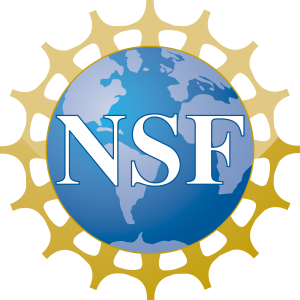 The following is a Dear Colleague Letter (DCL) from James Kurose, Assistant Director for Directorate of Computer & Information Science & Engineering (CISE), and Arthur Lupia, Assistant Director for Directorate for Social, Behavioral, and Economic Sciences (SBE), of the National Science Foundation (NSF). The goal of this DCL, which specifically mentions the Computing Community Consortium (CCC) AI Roadmap, is to encourage the submission of EAGERs on understanding the social challenges arising from AI technology and enable scientific contribute to overcoming them.
The following is a Dear Colleague Letter (DCL) from James Kurose, Assistant Director for Directorate of Computer & Information Science & Engineering (CISE), and Arthur Lupia, Assistant Director for Directorate for Social, Behavioral, and Economic Sciences (SBE), of the National Science Foundation (NSF). The goal of this DCL, which specifically mentions the Computing Community Consortium (CCC) AI Roadmap, is to encourage the submission of EAGERs on understanding the social challenges arising from AI technology and enable scientific contribute to overcoming them.
Dear Colleagues:
The National Science Foundation’s (NSF) Directorates for Computer and Information Science and Engineering (CISE) and Social, Behavioral and Economic Sciences (SBE) together with the Partnership on AI (PAI) wish to notify the community of their interest in supporting EArly-concept Grants for Exploratory Research (EAGERs) to understand the social challenges arising from AI technology and enable scientific contributions to overcome them.
The last 20 years have seen rapid advances in machine learning, pattern recognition, planning, effective decision making, natural language processing, and machine vision. These advances have been fueled by increased data, faster computation, and improved algorithms. They are yielding increasingly diverse and large-scale applications deployed in settings subject to unanticipated challenges with complex social effects.
NSF has long supported fundamental research enabling AI technology. With increases in the scale and diversity of deployments comes the need to better understand AI in the open world, including unforeseen circumstances and social impacts, and to craft approaches to AI that consider these from the start. Vital directions include developing principles for safe, robust, and trustworthy AI (including shared responsibilities between humans and AI systems); addressing issues of bias, fairness, and transparency of algorithmic intelligence; developing deeper understanding of human-AI interaction and user education; and developing insights about the influences of AI on people and society.
NSF and PAI will jointly support high-risk, high-reward research at the intersection of the social and technical dimensions of AI. Priority will be given to collaborative projects that integrate computer/computational science with the social, behavioral, and economic sciences. Proposals may expand understanding of the influences of AI on people and society or contribute technical innovations that overcome the emerging social challenges.
Topics include, but are not limited to:
- Safety, robustness, and accountability of AI systems;
- Bias and fairness of AI systems;
- Intelligibility, explanation, and transparency of AI inferences;
- Privacy challenges with AI development and use;
- Sociotechnical challenges involving ethical considerations;
- Economic impacts of AI on society; and
- Social consequences of AI system deployments.
EAGER proposals that fail to address concepts described in this DCL will be returned without review. An individual may appear as principal investigator (PI), co-PI, Senior Personnel, or Consultant on no more than one EAGER proposal submitted in response to this DCL.
Community response to this DCL will help identify ground-breaking directions. In parallel, the Computing Community Consortium (CCC) is leading an AI “roadmapping” effort that will complement the EAGERs funded pursuant to this DCL. That roadmapping activity aims to build community consensus around grand challenges in AI and an associated long-term and interdisciplinary research agenda.
EAGER proposals pursuant to this DCL are welcome through January 28, 2019, but earlier submissions are encouraged. Submissions should follow the guidance in NSF Proposal & Award Policies & Procedures Guide (PAPPG) Chapter II.E.2. NSF and the Partnership on AI anticipate jointly supporting up to 15 EAGER awards, each up to $300,000 for up to two years, in accordance with the PAPPG. EAGER proposals pursuant to this DCL must include the prefix “AI-DCL:” in front of the title.
Prior to submitting an EAGER proposal, PIs must first send a one-page prospectus to AI-DCLQuestions@nsf.gov. Once NSF program officers have approved the prospectus, the PI will be invited to submit a full EAGER proposal to a specific program. The prospectus should be responsive to the DCL and make a compelling case that the project is suitable for an EAGER. The prospectus must be received no later than January 9, 2019.
Questions about this DCL should be directed to the following cognizant NSF program directors:
- Todd Leen, CISE Division of Information and Intelligent Systems, email: tleen@nsf.gov.
- Fred Kronz, SBE Division of Social and Economic Sciences, email: fkronz@nsf.gov.
Sincerely,
Jim Kurose
Assistant Director, CISE
Arthur Lupia
Assistant Director, SBE









